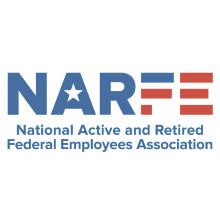SEA President Testifies Before Senate Subcommittee on Issues Unique to SESSEA President Carol Bonosaro testified May 6 before the Senate Subcommittee on the Efficiency and Effectiveness of Federal Programs and the Federal Workforce of the Homeland Security and Governmental Affairs Committee at a hearing titled, "A More Efficient and Effective Government: Cultivating the Federal Workforce."Click here for the full written testimony (PDF) Click here for the oral statement (PDF), also seen below: SEA President Carol Bonosaro's Oral StatementChairman Tester, Ranking Member Portman, and Members of the Subcommittee, thank you for the opportunity to testify today about the current state of the federal workforce. As you know, the Senior Executives Association represents the nearly 7,000 career members of the Senior Executive Service. Many of the challenges facing the SES are the same as those for the federal workforce as a whole – budget cuts; fallout from pay freezes, furloughs and the government shutdown; and sagging morale. Some issues are unique to the SES due to their position in government and separate personnel and pay for performance systems. I'll focus on these issues today. If you ask Senior Executives about the state of the SES workforce, which SEA recently did, the responses highlight problems that require immediate attention. They said: "There is not a company in the world that would institute pay freezes, deny or limit performance bonuses, continually criticize senior executives, politicize mistakes by agencies and blow them all out of proportion and at the same time expect us to work long hours, recruit top talent and continue to be positive about the future of government." "My best colleagues are retiring in disgust, and the best 15's don't see a reason to go into the SES." "Morale is excellent with regard to carrying out our mission, but the under-appreciation and outright disdain demonstrated regarding our contributions is a significant drain on morale." Regarding the SES performance system: "It is untimely, burdensome, and didn't recognize great performance....My agency will lose nearly 20% of our Scientific and Professional corps in one year to retirement and resignations. It started with furloughs and the pay/performance (issues) put it over the top." These comments paint a picture of a demoralized executive corps; indeed, 51% of our members reported morale as low or very low. With retirement up 40% since 2009 and fewer GS-15s aspiring to the SES, recruitment and retention should be among the top priorities of Congress and the Administration. A strong SES is critical to effective agency operations and workforce management. Senior Executives are highly-qualified professionals who oversee sizeable agency budgets and complex programs, and have a large span of control. They are often also technical experts in their fields. Senior Executives have earned the Presidential Distinguished Rank Award for outstanding contributions including: Managing a DOD Global Information Grid ‐ a network which extends into 90 countries ‐ assuring its infrastructure under all conditions including war, and providing "all the way to the foxhole" service, expanding information support by over 90 times that of Desert Storm 1. Developing the afterhours Tele‐Nurse Triage Program which provides clinical telephone care services to seven networks of hospitals in multiple time zones; it serviced 1.4 million veterans in 2011. Establishing Medicare Fraud "Strike Force" operations leading to 1200 defendants charged for falsely billing Medicare more than $3.6 billion. Many of the challenges for the career executive corps, as well as areas of needed reform, are outlined in SEA's written testimony. One issue that deserves particular mention, however, is the SES pay for performance system created in 2004. All SES pay adjustments are discretionary and based on performance. Senior Executives annual performance ratings are based on standards which focus on measurable results, and high performers are considered for performance awards. Unlike General Schedule employees, they do not receive locality pay, comp time or cost of living increases. Nearly one quarter of the SES make equal to or less than their GS subordinates. Many executives perceive the performance appraisal system to lack transparency and fairness. As any Senior Executive will tell you, it's not about the pay. If it were, they'd be working in the private sector. Coupled with the other challenges facing the SES and the workforce as a whole, however, it serves as a major detractor to recruitment, retention and high morale. SEA would be pleased to work with the subcommittee to implement meaningful reforms to the system, including by ending downward pressure on performance awards, strengthening the timeliness and transparency of the system, and putting stability back into the system by restoring locality pay and providing annual increases based on the General Schedule increases to those executives rated fully successful or higher. Despite the challenges in the SES system, executives are strongly committed to serving the taxpayer and meeting agency missions. We must restore respect and support for the men and women in the SES and equivalent positions who give so much of themselves for their government and the American people and who ask only to be treated fairly. |











